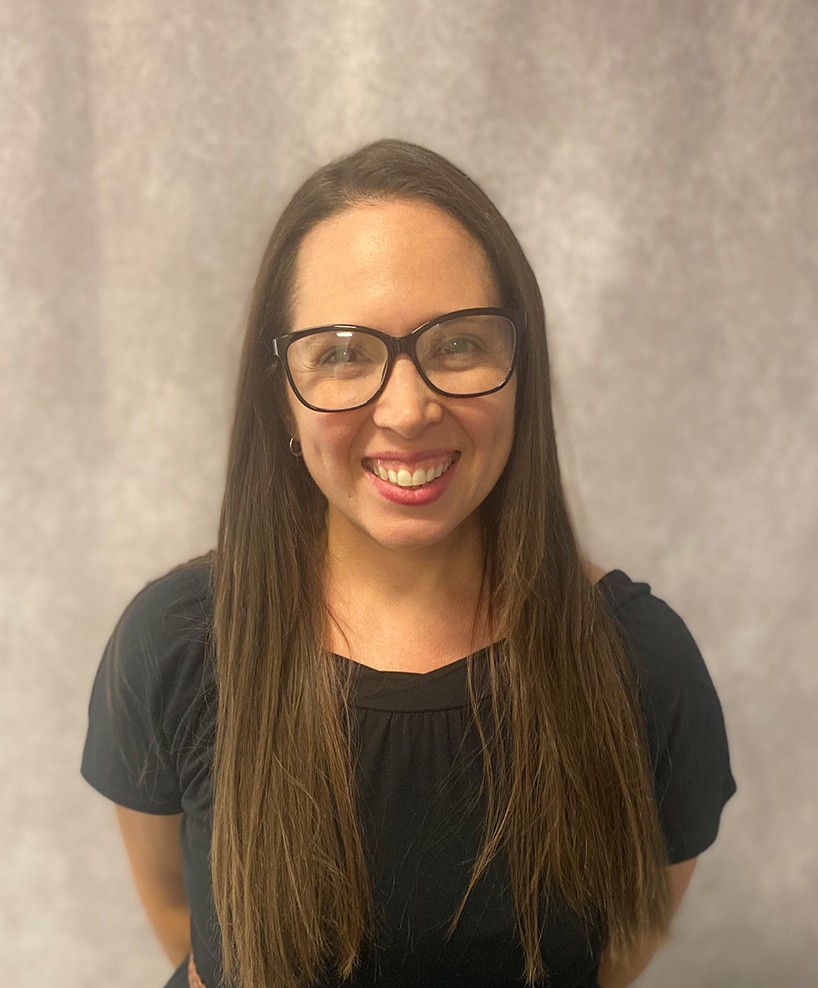Conversations with our children about addiction: Part II

This is the second part of our two part series, “Conversations with our children about addiction,” which focuses on ages 0-12. Click here for part one, which focuses on adolescents and young adults.
By Jennifer Fukuda • Addiction and Recovery Services Program Coordinator
You may not have thought about talking to your young child about addiction. But children of all ages benefit from learning about moderation, healthy coping habits, how addiction impacts their body and brain, and helpful prevention strategies. While it is easy to leave these conversations until children are older, it is never too soon to begin normalizing discussions of this nature. It is never too early to begin conversations about keeping your body healthy and safe.
Parents who talk to their children about alcohol and other drugs early and often protect them from many of the high-risk behaviors caused by using these substances (SAMHSA, n.d.). It has been found that children as young as 3 are able to identify an alcoholic beverage (Mulkey & Yule, 2022). Starting conversations about these substances before your child is introduced to drugs or alcohol in a social setting can help them feel more confident and knowledgeable. Your conversations will help set them up for success because they will be aware of how these substances negatively impact their body and they will feel prepared to turn down offers with confidence and certainty.

By talking about addiction, drugs, and alcohol, you are also removing the stigma around these topics and providing children with knowledge to help them understand if someone they love is struggling with an addiction. Having short and meaningful conversations raises awareness, promotes healthy choices, and shows you are open to having honest conversations whenever your child has questions.
To help children understand what addiction is, parents can explain that some people’s bodies and brains have trouble with moderation, and this can become addiction. Addiction can make people very sick, even though it is not something you can catch, like a cold. Addiction is when your brain makes it hard to not drink alcohol or use drugs and you need treatment and help to get better. Breaking the stigma around addiction by having non-judgmental conversations will also increase your child’s own empathy for those who struggle with addiction.
Additionally, studies show that curiosity is one determining factor associated with risk-taking behavior like trying alcohol and drugs (Attila et al, 2022). Simply put, removing the unknown promotes conversations and may help lower curiosity. Not talking about it can also send the message that there is no harm in trying it (SAMHSA, n.d.).
Often, parents feel like they don’t know where to start or they need to have all the answers to begin a conversation, and that is not the case. Below is a simple guide for how to talk to children of differing ages about addiction and keeping their body safe.
Young children (under 6):
This age group can benefit from conversations about being responsible, practicing moderation, and having a healthy relationship with food, vitamins, and medications. You may use sugar as an example for moderation. It’s okay to have a cookie, but 10 cookies is too many and could make your body feel icky. Another great topic is listening to their own body. For example, understanding what it feels like to be hungry and make healthy choices.
Vitamins are something that many children receive; because they taste good, children often request seconds. This is a great opportunity to talk about how one vitamin helps us stay healthy, but more than one can make our bodies sick. Medication conversations look similar; we take our medicine just as the doctor tells us to – if we take more it won’t feel good on our tummy and could even mean we have to go to the hospital.
These types of conversations prompt questions about moderation and making healthy choices at a young age. Start to model healthy coping skills and talk to your child about how they can use healthy coping strategies to relax and calm down when they are frustrated. Examples of this would be blowing bubbles to take deep breaths, coloring, counting slowly to 10, asking for a hug when they need it, listening to their favorite song, gently petting their animal or a favorite stuffy, and learning some yoga moves.
School-age children (6-9 years):
Children in this age range are learning how to keep their bodies safe by making responsible choices like wearing a helmet when they are on wheels and buckling-up when they are in the car. Parents of kids who are in this age group can start talking about how drugs are both helpful and dangerous. Drugs, known as medications, that come from doctors can help people stay healthy, but you must never take something that isn’t for you. Prescriptions are for specific people and can make you sick if they are not for you and your body.
Additionally, discussions about alcohol and smoking can be introduced. Alcohol is a drink that some adults choose to have in moderation. Because adults have fully developed brains, this is a choice they can make. Children have brains that are still growing, and alcohol can be very dangerous to growing brains. Older kids in this age group can also be introduced to addiction in simple terms.
An age-appropriate way to explain addiction to this age group is by explaining that some people’s brains and bodies have trouble with moderation. When someone struggles with moderation, they can become addicted, and this is harmful to their bodies, brains, and relationships. A helpful segway to this discussion can be screen-time and how we practice moderation with behaviors like technology as well. Continue to introduce and discuss what healthy choices they can make when they are feeling sad or frustrated that will help them feel calm.
Older children (10-12 years):
These children are often engaged in social media and learning about how impactful peer-pressure can be in everyday life. They are discovering themselves and finding their people. Kids this age are making bigger decisions and need to feel like they can advocate for themselves. Keep conversations calm, be honest, ask questions, don’t lecture, and celebrate healthy choices together.
The most common drugs that children try first are alcohol, cannabis (smoking and edibles), nicotine (cigarettes, e-cigarettes or vapes, nicotine pouches, and chewing tobacco), and inhalants (glue, paint, hairspray) (Mayo Clinic, 2023; 2024c). Talk to children about these substances and why they are unsafe. Empower your child with knowledge and talk about how using these substances could impact things they care about, such as academics, sports, future plans, and relationships. A child who sings could be reminded of how cigarettes could harm their voice. A child who cares about their grades might really relate to the fact that marijuana causes short-term memory loss (2024c). Children who are into sports may find it interesting that inhalants can cause heart irregularities (2024c).
While relating to children is important and facts are facts, also be mindful that scare tactics are not helpful – what is most important is support and trust. Talk about prevention and how to confidently turn down the opportunity to try these popular substances. Introduce the concept of a refusal strategy like, “No, thanks. I have a [game, concert, speech] coming up.” This is also a great age to talk about and reinforce intentionally practicing healthy coping strategies like journaling, yoga, breathing exercises, creating artwork, listening to music, positive self-talk, or reading a book they enjoy. You know your child best – let that guide the way you approach conversations with them.
For parents of adolescents and young adults, please reference our article in September’s issue addressing conversations about addiction with these age groups.
If you or your child need help due to substance use, if you have concerns of addiction, or if you would like support in talking with your child about addiction, don’t wait to seek support. Reach out to me, JFCS’ Addiction and Recovery Services Program Coordinator, at jfukuda@jfcsmpls.org or call 952-542-4837 to learn more about how JFCS can offer guidance and support for you or your loved one.
Helpful resources:
To learn more about nicotine pouches: https://truthinitiative.org/research-resources/emerging-tobacco-products/what-zyn-and-what-are-oral-nicotine-pouches
Operation Prevention has many resources including a prevention toolkit for parents: https://www.operationprevention.com/
Several helpful resources for parents can be found in this Health.gov article: https://health.gov/news/202311/starting-home-family-based-interventions-prevent-youth-substance-use
For more about talking to your child about addiction: https://safeharborrecovery.com/blog/guidelines-explaining-addiction-to-children/
More great ideas for discussion with young children from Sesame Workshop: https://sesameworkshop.org/resources/explaining-addiction
References:
- Attila, F., Agyei-Sarpong, K., Asamoah-Gyawa, J., Dadebo, A., Eshun, E., Owusu, F., & Barimah, S. (2022, December 27). Mediterranean Journal of Social & Behavioral Research. Youthful curiosity as a predictor of substance use among students. https://www.mjosbr.com/download/youthful-curiosity-as-a-predictor-of-substance-use-among-students-12807.pdf
- Mayo Foundation for Medical Education and Research. (2023, February 22). What parents should know about teen drug abuse. Mayo Clinic. https://www.mayoclinic.org/healthy-lifestyle/tween-and-teen-health/in-depth/teen-drug-abuse/art-20045921
- Mulkey, N., & Yule, A. M. (2022). The addiction inoculation: Raising healthy kids in a culture of dependence. Journal of the American Academy of Child & Adolescent Psychiatry, 61(4), 577–579. https://doi.org/10.1016/j.jaac.2022.01.012
- Talking with your kids about drugs, alcohol, and tobacco . University of Rochester Medical Center. (2024c). https://www.urmc.rochester.edu/encyclopedia/content.aspx?contenttypeid=1&contentid=1555#:~:text=Learn%20about%20the%20main%20drugs,or%20vaporizers%2C%20and%20chewing%20tobacco)
- Why you should talk with your child about alcohol and other drugs. SAMHSA. (n.d.). https://www.samhsa.gov/talk-they-hear-you/parent-resources/why-you-should-talk-your-child#:~:text=If%20you%20talk%20to%20your,associated%20with%20using%20these%20drugs.
